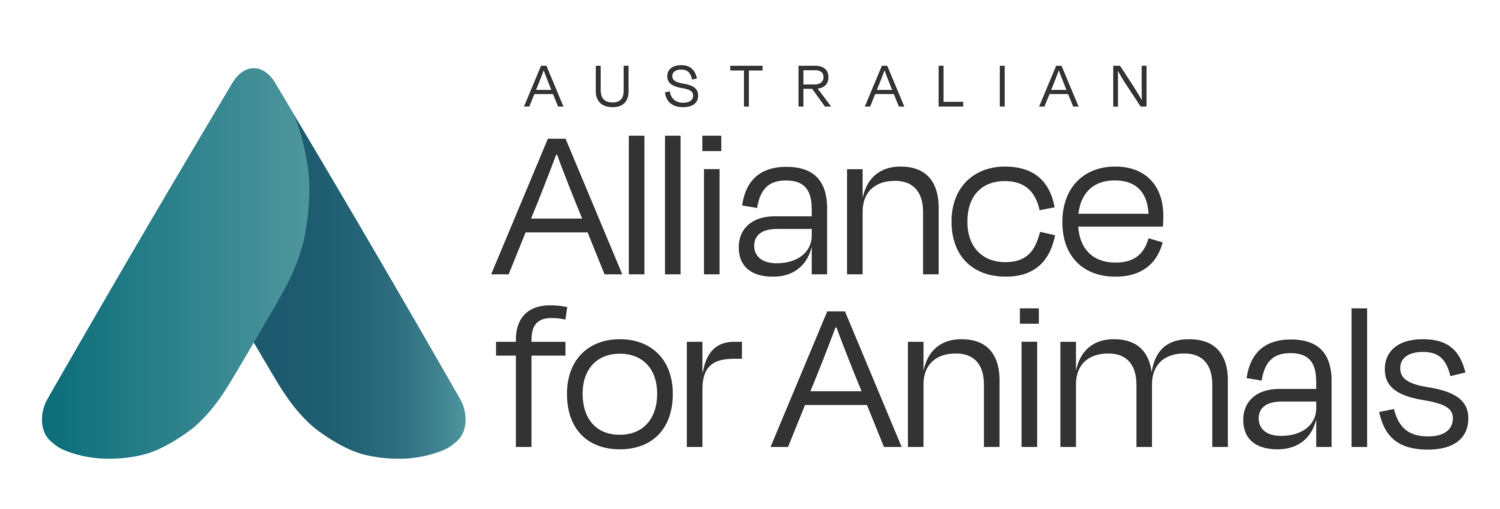More Certainty Needed on Battery Cage Phase-Out
The Australian Alliance for Animals is calling for more certainty over the phase-out of battery cages following the endorsement of new national standards for poultry welfare at yesterday’s Agriculture Ministers Meeting.
Alliance for Animals’ Policy Director Dr Jed Goodfellow said while the decision to endorse the phase-out was positive, the lack of clarity around the timeframe was disappointing.
“After eight long years of debate and deliberation, it is pleasing to see state and territory governments finally agreeing to consign the cruel battery cage to history,
“But we are disappointed to see that the timeframe for implementing the phase-out will be left up to individual states to decide,
“This places the 2032-2036 timeframe contained in the national standards at risk and fails to provide the community, and the industry, with certainty,
Despite strong consumer preferences for cage-free eggs, over 5 million hens remain confined in battery cages in Australia and millions more will continue to suffer until an end date is enshrined in legislation.
“It is incumbent upon all state governments to now announce their respective phase-out timeframes so that all stakeholders know where they stand and can prepare for the future,
“These timeframes should be as short as possible to ensure that millions of hens do not continue to suffer unnecessarily inside these outdated barren cages,
“We commend federal Agriculture Minister Murray Watt for his leadership on this important issue, however, this outcome really demonstrates the need for a better approach to national animal welfare standards development,
“The potential fragmentation in implementation and the uncertainty this creates goes to show that structural reform to our animal welfare system is desperately needed,
“We need a national Animal Welfare Commission – as recommended by the Productivity Commission – to coordinate national standards development and ensure we have greater consistency across the country.”
QUICK FACTS
Cage eggs account for 36% of volume and 28% of value in Australian supermarkets.
Battery cage systems prevent hens from engaging in essential behaviours including wing flapping, perching, nesting, and foraging, and cause the highest rates of fatty liver disease, disuse osteoporosis (brittle bones), and rates of bone fracture at depopulation of any egg production system.
Government-commissioned economic analysis found the increased production costs of moving from battery cages to the next cheapest option of furnished cages amounted to 5c per dozen.
64% of Australian egg consumers currently purchase non-cage (free-range or barn) eggs and economic analysis has shown that they will likely see a price decrease of 4 cents per egg due to increasing economies of scale.
NOTES FOR MEDIA
For all media, photo and interview inquiries, please contact 0426 025 329 or email media@allianceforanimals.org.au.
Dr Goodfellow is available for interviews:
Dr Jed Goodfellow leads the Alliance’s law and policy reform agenda. He has over 20 years’ experience in animal welfare law, policy and advocacy. He completed his PhD in animal welfare regulation in 2015.
About the Australian Alliance for Animals
The Australian Alliance for Animals is a national charity leading a strategic alliance of Australia’s key animal protection organisations with a combined supporter base of over 2 million people. Core members include Animals Australia, Humane Society International Australia, World Animal Protection Australia, Compassion in World Farming, FOUR PAWS Australia, and Voiceless, the animal protection institute. Website: www.allianceforanimals.org.au
Photo credit: Jo-Anne McArthur/WeAnimals.